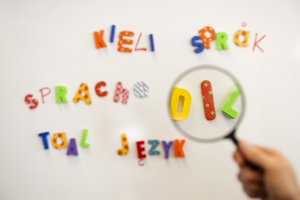About us

The meta-project Language Education in an Immigrant Society accompanies the funding directive of the same name of the Federal Ministry of Education and Research (BMBF). The aim is to link the work of the funded projects, to network groups of actors, to carry out own research on multilingualism and transfer, and to disseminate project results to the target group.
Linguistic skills are a key factor in determining educational success, social participation, and further opportunities in the labour market. Simultaneously, linguistic and cultural diversity in Germany is steadily rising. Studies show that an increasing number of children and young people in this country are growing up multilingually. However, multilingual resources of learners are used far too rarely in educational contexts. Promoting the linguistic abilities of all children and young people in the best possible way, regardless of their social and cultural background, is therefore a central task of language education and contributes to more equal opportunities in the education system.
There is already a body of empirical evidence on which language education approaches are effective and how multilingual resources can be used for content and language learning. But how can such approaches be best transferred to educational institutions? What do successful forms of teaching and learning in the context of multilingualism look like? How can all children and young people benefit from this? Where do robust findings on language education already exist and where are research gaps that need to be filled?
These and other questions are addressed by the meta-project Language Education in the Immigrant Society. From July 2022 to September 2028, it will accompany the funding directive of the same name of the Federal Ministry of Education and Research (BMBF), in which currently 21 sub-projects nationwide will deal with research questions on language education from the elementary level to adult education.

The aim of the meta-project is to link the work of these projects, to place it in an overarching scientific and social framework, and to inform the academic community, educational policies and the interested public. The project is jointly managed by the Mercator Institute for Literacy and Language Education at the University of Cologne, the University of Hamburg, and the German Institute for Adult Education - Leibniz Centre for Lifelong Learning (DIE) in Bonn.
In concrete terms, the participating researchers conduct studies on dealing with multilingualism as well as transfer and its guidance in the field of language education. In addition, they prepare research syntheses and support the professional discourse by continuously monitoring the results of the projects, identifying possible further research questions, and networking all project participants and other key stakeholders, for example by organising events. Another important task is to assist in the implementation of the individual research results by preparing the project results in a way that is suitable for the target group, developing various formats for this purpose, and promoting transfer in, and dialogue with, the practice and education administration.
The individual sub-projects of the funding directive have started by April 2023 and will be funded with a total volume of 15 million euros.
Partners
- Deutsches Institut für Erwachsenenbildung – Leibniz-Zentrum für Lebenslanges Lernen (DIE), Bonn
- Mercator-Institut für Sprachförderung und Deutsch als Zweitsprache, Universität zu Köln
- Universität Hamburg
Funded by
Federal Ministry of Education and Research (BMBF)
Duration
July 2022 – September 2028
Projekt management
- Prof. Dr. Hans Joachim Roth, Verbundkoordinator, Mercator-Institut
- Prof. Dr. Michael Becker-Mrotzek, Mercator-Institut
- Prof. Dr. Dr. h.c. mult. Ingrid Gogolin, Universität Hamburg
- Prof. Dr. Josef Schrader, DIE
Project team
You will find further information and contact data of the members of the project team here.
Further cooperation
Forschungsprogramm Multiliteralität als Arbeitsmarktressource (MARE)